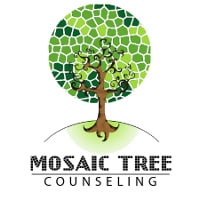Communication Difficulties
Communication issues may potentially develop in any circumstance or social relationship. It can be easy for individuals to misunderstand or misinterpret others, and these misunderstandings may lead to arguments or tension in personal, platonic, or professional relationships. In some instances, conflicts may arise, and these conflicts can make communication even more challenging. Situations that might contribute to communication issues include childhood stress, physical and mental health issues, trauma, misinterpretation of another person’s statements or motivation, failure to understand another person’s point of view, cultural barriers, linguistic differences, inaccurate assumptions and stereotypes, stonewalling, secrecy and deception, inflammatory remarks or behaviors, and poor listening skills. There are many therapeutic options available for individuals experiencing communication issues. Depending on one’s specific situation, those in need of professional support may find benefit from family therapy, couples counseling, or individual therapy (Burgess, & Burgess, 2005).

For example, people who experience communication difficulties as a result of repressed childhood trauma may be able to uncover and resolve unconscious thoughts and emotions in therapy and develop their communication skills as a result. Intimate partners who wish to communicate more effectively in their relationship may choose to explore Imago Relationship Therapy. A trained therapist can help individuals examine communication strategies to determine whether one’s communication style adequately conveys one’s thoughts, needs, and goals. In therapy, individuals who find themselves often engaged in misunderstandings can explore what causes them to misinterpret the viewpoints of others or inaccurately convey their own ideas. Therapy can facilitate the improvement of interpersonal and intergroup skills by helping individuals to improve the quality, nature, and frequency of their communications. Some treatment strategies that may be used to address communication issues include opening lines of communication, active listening, dialogic listening, questioning stereotypes, mediated communication, dialogue, and respectful communication (The Center for Nonviolent Communication, 2014).
List of Citations
Burgess, G., & Burgess, H. (2005). Conflict Management and Constructive Confrontation: A Guide to the Theory and Practice. Retrieved September 17, 2015
The Center for Nonviolent Communication. (2014). What is nvc?
Therapy Modalities
Abuse & Neglect
ADHD
Anxiety
Bipolar
Career Counseling
Communication Difficulties
Couples Therapy
Depression
Eating Disorders
Employee Assistance
Impulsive Behavior
Obsessive Compulsive Disorder (OCD)
Oppositional Defiant Disorder (ODD)
Play Therapy
Posttraumatic Stress Disorder (PTSD)
Self Esteem
Self Mutilation
Shop
Social Skills
Request More Information

